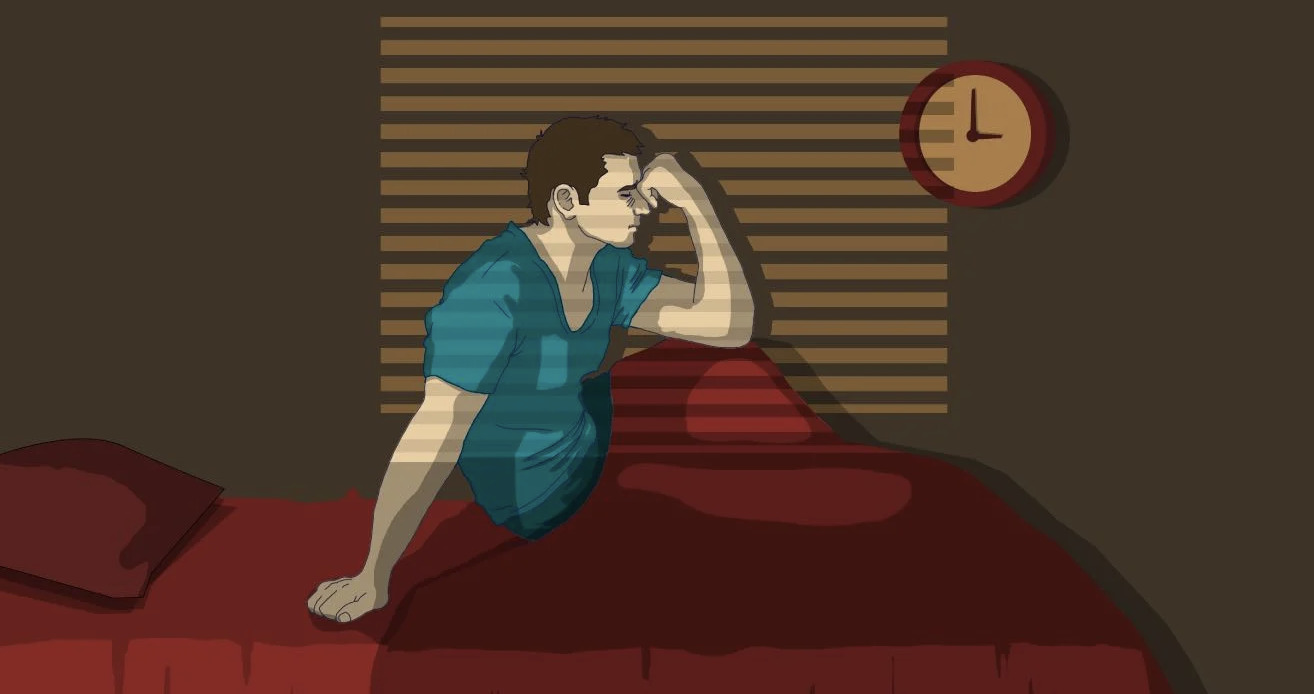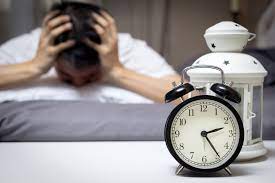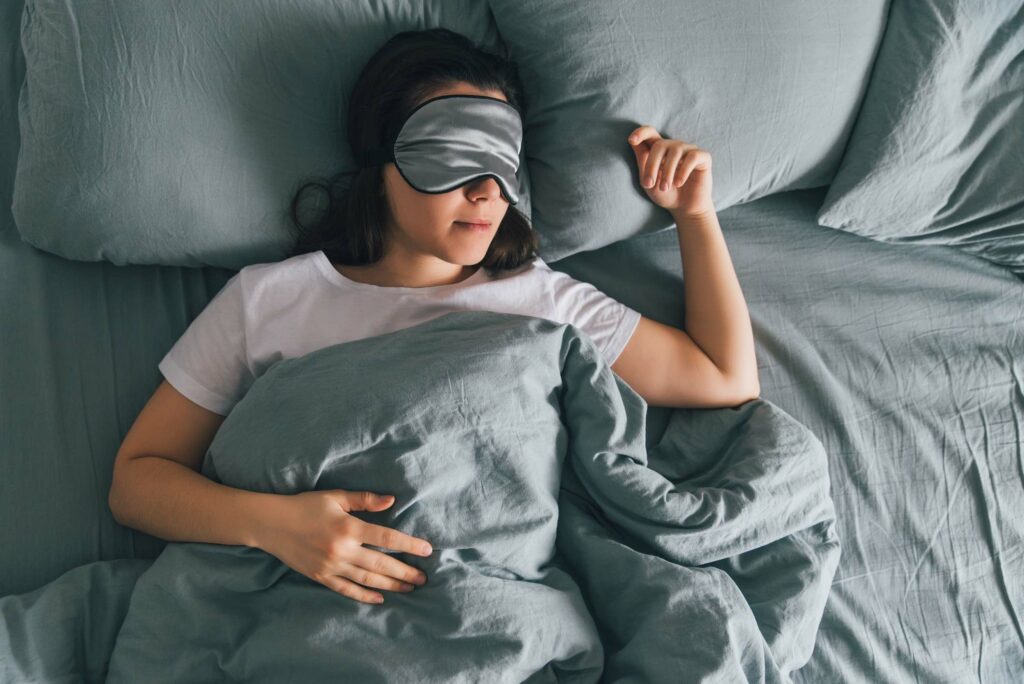Do you often have trouble sleeping at night? Are you constantly tossing and turning, or waking up in the middle of the night? If so, you are not alone. Millions of people around the world suffer from sleep problems. In this blog post, we will discuss some of the most common sleeping problems and offer solutions to help you get a good night’s sleep!
Contents
What Are Sleeping Problems?

On many occasions we find it hard for us to fall asleep. After long tired days, and the stress of tomorrow it is difficult to fall asleep or stay asleep. When we have problems regarding sleep whether it be sleepwalking, insomnia, sleep paralysis, nightmares, and they start to interrupt our lifestyle then we have a sleeping problem. Sleeping problem may be because of a medical condition or a difficult phase of life. but if they interfere our mental and physical health, it’s worth to give the doctor a visit and fix your sleep.
Some Common Sleeping Problems
There are many different sleeping problems that can keep you from getting a good night’s sleep. Some of the most common include:
• Insomnia: This is the most common sleep disorder and it refers to difficulty falling asleep or staying asleep. If you have insomnia, you may find yourself lying in bed for hours trying to fall asleep, or you may wake up in the middle of the night and be unable to fall back asleep.
• Sleep Apnea: This is a serious sleep disorder that occurs when you stop breathing for brief periods during sleep. If you have sleep apnea, you may snore loudly or make gasping noises as you try to catch your breath.
• Restless Leg Syndrome: This is a condition that causes an irresistible urge to move your legs, which can make it difficult to fall asleep or stay asleep.
• Nightmares: These are frightening dreams that can cause you to wake up in a panic. Chronic nightmare might be a sign of underlying mental heath condition.
All of us experience trouble falling or staying asleep some stressful evenings, but longer stretches of these problems may be a sign of chronic sleeping illness or a mental illness. It’s advised to see a doctor if sleeping problems don’t resolve themselves in a month.
Signs That You Might Be Having Sleeping Problems

If you are having difficulty sleeping, there are some telltale signs that may indicate a sleep disorder. These include:
- Difficulty falling asleep or staying asleep
- Waking up frequently during the night
- Feeling exhausted during the day
- Difficulty concentrating during the day
- Irritability or moodiness
- Waking up with a headache
If you are experiencing any of these symptoms, it is important to see a doctor to rule out any underlying medical conditions.
Causes

There are many different things that can cause sleeping problems. Some of the most common include:
• Stress: This is one of the most common causes of sleep problems. When you are stressed, your body releases hormones that can make it difficult to fall asleep or stay asleep.
• Anxiety: This is another common cause of sleep problems. If you are worried or anxious about something, it can be hard to fall asleep or stay asleep.
• Depression: This is a common cause of sleep problems. Depression can make it difficult to fall asleep or stay asleep.
• Poor sleep habits: If you have poor sleep habits, such as working late into the night or sleeping during the day, it can make it difficult to get a good night’s sleep.
• Medications: Some medications can cause sleeping problems. If you are taking medication, talk to your doctor to see if it could be causing your sleep problems.
• Medical conditions: Some medical conditions can cause sleeping problems. If you have a medical condition, talk to your doctor to see if it could be causing your sleep problems.
Whatever the causes for your sleep problem are, they can be resolved with proper care and guidance of a doctor so that you may live your life ideally.
Consequences
If you’re one of the millions of people who suffer from occasional or chronic sleeping problems, you may not be aware of the long-term damage that can be caused by a lack of sleep. If you are not getting enough sleep, it can have a negative impact on your life. Sleep is important for your physical and mental health. If you are not getting enough sleep, it can lead to:
• Fatigue: This is one of the most common effects of sleep deprivation. When you are tired, it can be hard to concentrate or pay attention. You may also find yourself feeling irritable or moody.
• Weight gain: This is another common effect of sleep deprivation. When you are not getting enough sleep, your body may crave high-calorie foods.
• Depression: This is a common effect of sleep deprivation. When you are not getting enough sleep, it can lead to feelings of sadness and hopelessness.
• Anxiety: This is another common effect of sleep deprivation. When you are not getting enough sleep, you may find yourself feeling anxious or stressed.
• Poor immune function: This is another common effect of sleep deprivation. When you are not getting enough sleep, your body may be more susceptible to illness.
• Heart disease: This is a serious effect of sleep deprivation. When you are not getting enough sleep, your risk for heart disease increases.
• Memory problems: This is one of the most common long-term effects of sleep deprivation. When you are not getting enough sleep, it can be hard to focus and remember things.
• Mood Swings: This is another common long-term effect of sleep deprivation. When you are not getting enough sleep, you may find yourself feeling irritable or moody.
Sleeping problems affect your physical, mental and social wellbeing. So, it’s important to take it as seriously as you can. to save ourselves from ‘Long-term effects of sleeping problems.
Tips For Improving Your Sleep
There are a lot of things that we can do, ourselves or with the help of professionals to help us out with our sleeping problems. Some of the self-help and professional ways have been listed below in the blogpost.
Self-Help Tips

If you are not getting enough sleep, there are some things you can do to help improve your sleep. Some tips for improving your sleep include:
- Establish a regular sleep schedule: This means going to bed and waking up at the same time each day.
- Create a relaxing bedtime routine: This may include taking a warm bath or reading a book before bed.
- Avoid caffeine and alcohol: These can make it difficult to fall asleep and stay asleep.
- Avoid working or using electronic devices in bed: This can help you avoid stimulating your mind before bed.
- Get up and move around during the day: This can help you get your body moving and improve your sleep at night.
- Practice relaxation techniques: This may include deep breathing or meditation.
If you are not getting enough sleep, talk to your doctor. There are some things you can do to help improve your sleep. With a little effort, you can get the rest you need and improve your overall health.
Professional help

Often when sleeping problems don’t sort themselves out, it is advised to see a doctor. The doctor might suggest some techniques or procedures to help with your sleeping problems. Such as:
- Hypnotherapy: hypnotherapy creates an opportunity for us to sort our thoughts and feelings and help us relax. Hypnotherapy has shown successful results in cases of sleepwalking, bedwetting, nightmares and other considerable sleep problems.
- Cognitive behavioral therapy for insomnia (CBT-I): This is a type of therapy that can help you change the way you think about sleep and how to deal with sleeping problems. it helps you to identify thoughts or behaviors that are causing you sleeping problem and teaches you to replace them with healthier habits.
- Stimulus control therapy: This is a type of therapy that can help you change your habits around sleep. They are designed to strengthen the bed as a cue to sleep.
- Relaxation therapy: This is a type of therapy that can help you learn how to relax your body and mind. It includes relaxation techniques such as diaphragmatic breathing, yoga, meditation, massages, etc.
- Sleep hygiene: This is a set of habits that can help you create an environment that promotes better sleep. Dimming the lights, reading a novel, developing a night self care routine, etc.
- Sleep restriction therapy: This is a type of therapy that can help you limit the amount of time you spend in bed to the amount of time you actually sleep.
- Biofeedback: This is a type of therapy which teaches you to control your body’s response to stress.
- Light therapy: This is a type of therapy that can help you reset your body’s sleep-wake cycle.
- Acupuncture: This is a type of alternate medicine in which needles are inserted in parts of body. Acupuncture is a pseudoscience which can be combined with other forms of treatment. it is used for relaxing body and mind.
Most of the alternate medicine techniques can be combined with medication to help resolve your troubles faster. Although administration of drugs is rarely required after trying out these techniques and altering your lifestyle for better sleep patterns.
Medicines
If you have difficulty sleeping, your doctor may prescribe medication to help you sleep. There are many different types of sleep medication available. Some common sleep medications include:
• Benzodiazepines: These medications work by slowing down the nervous system. Common benzodiazepines used for sleep include lorazepam (Ativan) and diazepam (Valium).
• Antidepressants: These medications work by increasing levels of serotonin in the brain. Common antidepressants used for sleep include amitriptyline (Elavil) and trazodone (Desyrel).
• Anti-anxiety medications: These medications work by reducing anxiety. Common anti-anxiety medications used for sleep include hydroxyzine (Vistaril) and buspirone (Buspar).
• Melatonin: This is a hormone that helps regulate the sleep-wake cycle. Melatonin supplements are available over-the-counter.
Your doctor can help you find the right medication for you. Be sure to tell your doctor about any other medications you are taking, as well as any medical conditions you have.
Conclusion
Sleeping problems are common and there are things you can do to improve your sleeping pattern and your lifestyle. Practicing mindfulness and selfcare can help you relax. relaxed mind can get better sleep and hence more productive days. It can significantly improve your mental and physical health.
In addition, there are times when only natural options might not work as well as you would like. If this is the case, consider seeking out professional help from a therapist or counselor. With proper treatment, better sleep hygiene is possible.
For more information and tips you can contact Therapy Mantra. We have a team of professional therapists who can provide you with the support and guidance you need to recover from this condition. Contact us today to learn more about our services. You can also book an online therapy session or download our free Android or iOS app.


